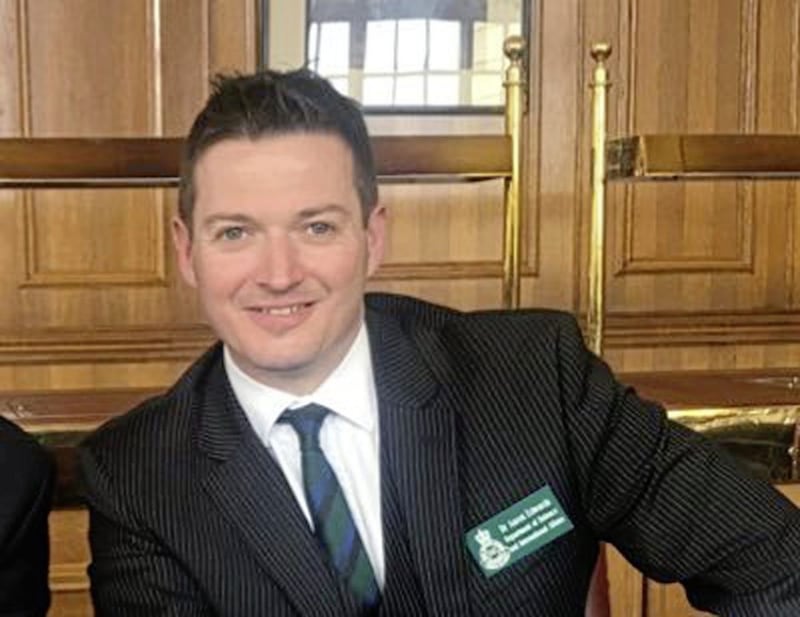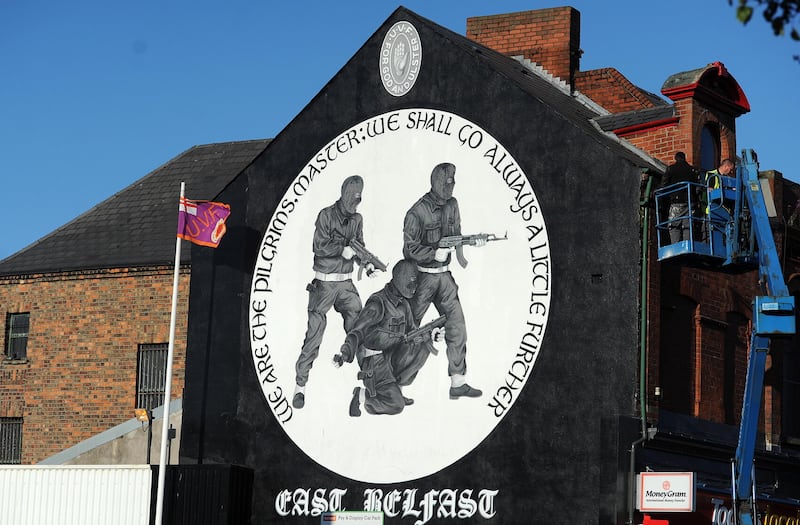The alleged commander of the UVF in east Belfast has been ordered to stand down by the leadership of the loyalist paramilitary group.
It is understood members of the UVF were told on Sunday that Stephen ‘Mackers’ Matthews had been removed as the organisation’s brigadier in the area.
The decision to oust Matthews is believed to have been taken by the UVF’s Shankill Road-based leadership.
Matthews denies involvement in the UVF or criminality.
Read More:East Belfast UVF linked to major drugs supply network and criminality
Need to ‘deradicalise' young loyalists in Northern Ireland, academic tells MPs
It is understood details were revealed to rank and file members during a series of Remembrance Day events held in loyalist areas on Sunday and became effective from midnight.
Sources suggest Matthews has now been replaced by a veteran UVF man from the city.
The UVF in east Belfast has been strongly linked to the drugs trade and other criminality in recent years.
It has been regularly targeted and the focus of the Paramilitary Crime Task Force.

Academic Dr Aaron Edwards, author of 'UVF: Behind the Mask', revealed details of the UVF move to replace the leadership of its east Belfast leadership on Sunday.
A senior lecturer in defence and international affairs at the Royal Military Academy, Sandhurst, he described the leadership’s intervention as a “significant development”.
“The recent development this week has been a big drugs bust against the east Belfast crime gang and now they have had the paramilitary structures pulled away from them,” he said.
“Their political cover is gone completely, and they have been expelled.
“So what normally happens is the organisation attempts to control the situation by putting other people in.”
Although the UVF is on ceasefire, it has been implicated in various forms of criminality in recent years.
Dr Edwards said it appeared the main UVF grouping was now going to “do something more meaningful in terms of group transition”.
“Is this now more significant because the UVF as an organisation disappears completely?
“That’s a big open question, but certainly they have now distanced themselves properly from the criminal element and, in individual areas, they are being challenged by their supporters, I think it’s plausible we will hear some more about this.”
Mr Edwards said the push against the Matthews' faction has been “supported by other areas”.
“Even though other areas are slightly autonomous, they all fall into line behind the Shankill leadership and those decisions are made from the top.
“What I am led to believe is that there is significant support….for this.”
“That was echoed in terms of the cheers that went up when the statement was read out yesterday (Sunday) afternoon," he claimed.
Last month Mr Edwards gave evidence to the Northern Ireland Affairs Committee on the impact of paramilitarism in the north and spoke of the need to “deradicalise” young loyalists.
He believes his “intervention a few weeks ago in parliament….triggered this response”.
“In the meetings I had subsequently in Northern Ireland, the funding was at risk, the peace funding, and the trajectory mapped out by this group and others in the LCC (Loyalist Community Council) about criminality and where they wanted to go,” he said.
“So, I think this had to be done otherwise they would not have been seen as serious.”
“And then the whole conflict transformation programmes that have been bought into over the years would have been in jeopardy.
“That’s a coercive move, perhaps, in terms of state, in terms of donors and they (UVF) have responded and it’s certainly to be welcomed because that group in particular is a danger to their own community.”

Dr Edwards believes that the ousted UVF leadership in east Belfast now has difficult decisions to make.
“In loyalist paramilitary parlance, the one thing going through the minds of the former UVF leadership in east Belfast is ‘when do they get off side?’.
“Do they get offside or do they try and fight this and that is, I think, a dangerous set of circumstances that we are currently in.
“But they have been exposed as a crime gang with no political cover or connection to the political scene or to paramilitarism and that hasn’t happened since the 1990s, the mid 90s and that led to significant trouble.
“But we are in a different place and the police are much more robust and focused to the Paramilitary Crime Task Force on east Belfast so it’s over to the state, it’s the state’s move to make.”
SDLP councillor Séamas de Faoite said paramilitary groups were not wanted by wider society.
“East Belfast UVF's active criminality and thuggery are well known - so too are the PSNI's continued successes in targeting these terror kingpins,” he said.
“Shuffling the deckchairs ignores the fact that the community has and will continue to reject them and their acolytes.
“Twenty-Five years on from the (Good Friday) Agreement the people of east Belfast are determined to live away from the shadow of the gunman.”
A spokesman for the PSNI said it “does not comment on intelligence matters”.
“We remain committed to investigating all paramilitary groups within Northern Ireland,” it added.


